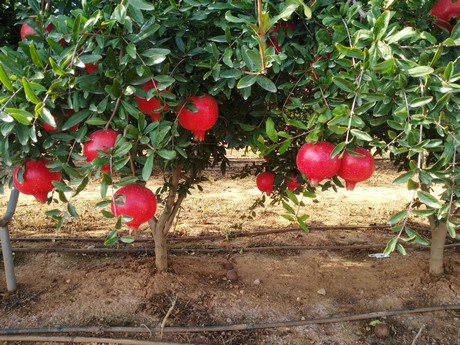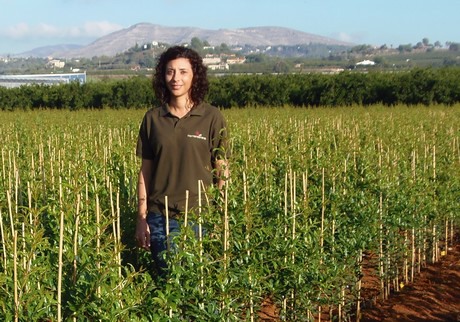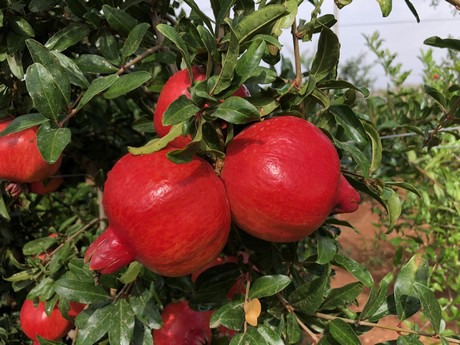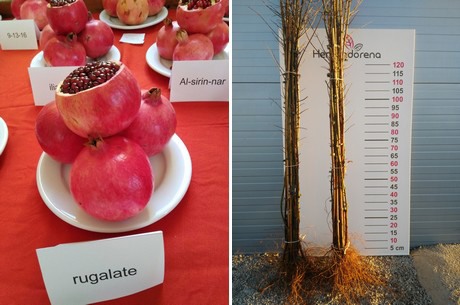In recent years, many companies have decided to try the cultivation of pomegranates. This boom has led some to success, but many have also failed due to the market saturation, with a product whose consumption is much smaller than that of other commodity products, such as stone fruit or citrus.

“Many of the producers who had ventured to plant pomegranates without control have disappeared, in a kind of 'natural selection' determined by the market. Those producers who remain standing in the pomegranate sector do so thanks to the planting of the right varieties in the right place, and with the implementation of good cultivation techniques,” says Rosa Hernandorena, managing director of Viveros Hernandorena.

“For some time, the market has been looking for varieties with an intense red color that are also sweet. So far, the dominant variety has been the traditional Mollar, which is sweet, but has a weak coloration, both inside and out. Then came pomegranates like the Wonderful, which are very attractive for their bright red color, but which have a sour flavor. Now we are preparing the launch of two new varieties: the Iliana (early) and the Rugalate (late), red inside and out, with imperceptible seeds and high Brix degrees, developed by the Valencian Institute of Agricultural Research (IVIA),” explains Rosa Hernandorena.
 The Iliana, a new early variety.
The Iliana, a new early variety.
“We believe that with these varieties, the pomegranate market will continue to grow. The prices are stabilizing again, as confirmed to us by the producers that have been following a good strategy in production and marketing,” she says.

This year, the Valencian company Viveros Hernandorena will double its production of pomegranate seedlings, going from 60,000 to 120,000 units. This way, it will position itself as a top pomegranate nursery. "We want the sector to know us as the leading pomegranate nursery, and this cannot be achieved without volumes, quality and homogeneity," says manager Rosa Hernandorena.

This nursery's seedlings are produced based on the "guide just in time" production system. It is an internally protocolized system in which the plants are staked to ensure the trunk remains straight. “Periodic pruning is also carried out on the lateral shoots earlier than used to be done in traditional methods. In this way, the pruning cuts are smaller in size and heal well before the start, so they don't become an entry route for pests and diseases,” says the expert.

Viveros Hernandorena organizes technical visits at its facilities in the municipality of Benimodo, in Valencia, from the end of August to the beginning of November.
For more information and appointments for the technical visits:
Jose Sánchez
Viveros Hernandorena
T: +34 96 253 26 81
M: +34 671 34 24 77
comercial@hernandorena.com
www.hernandorena.com

